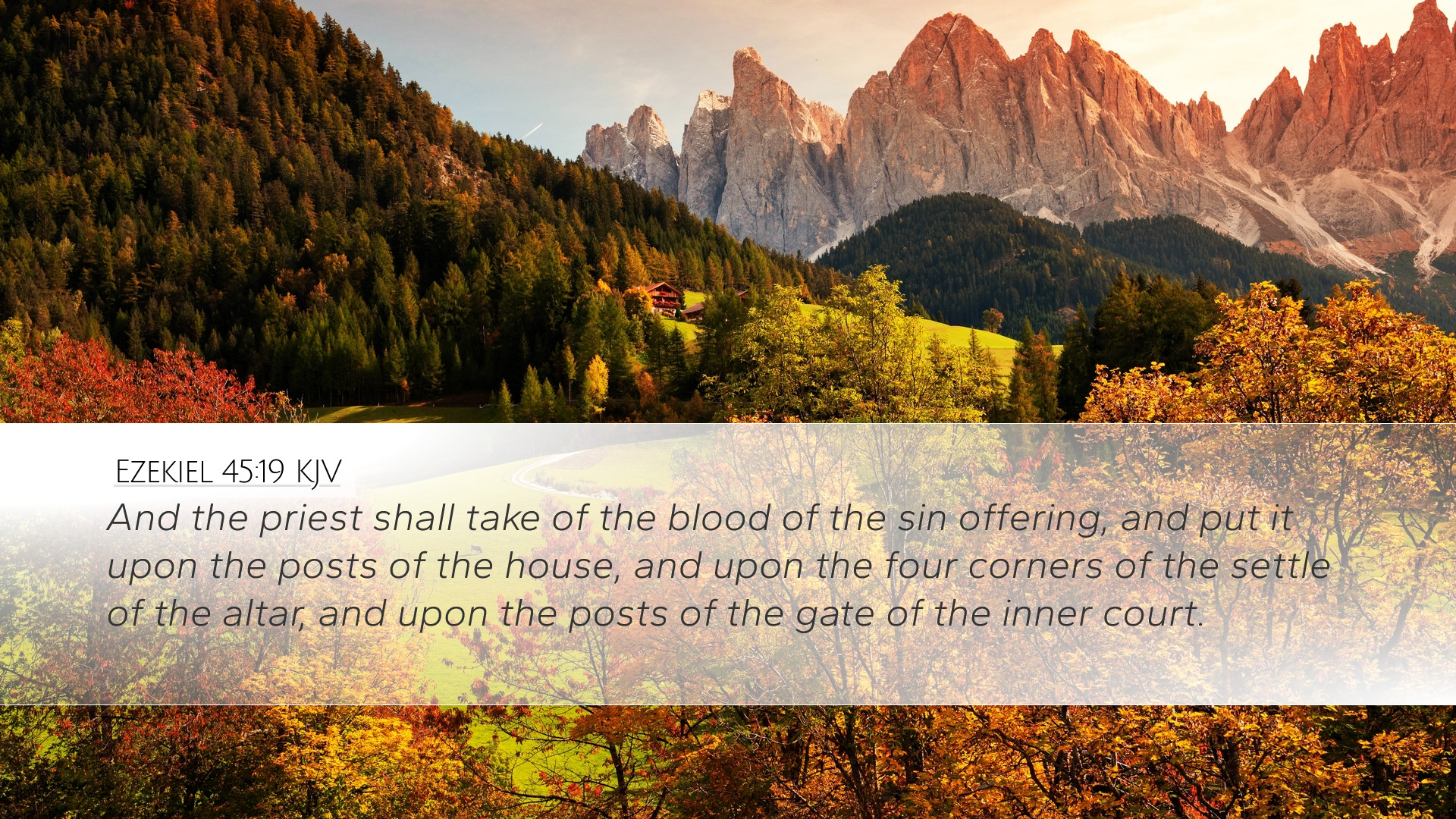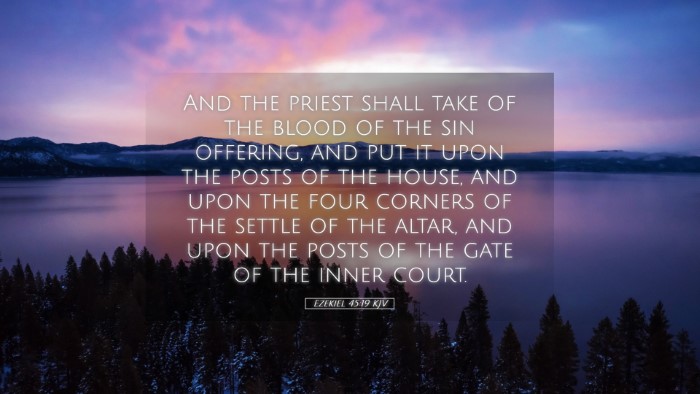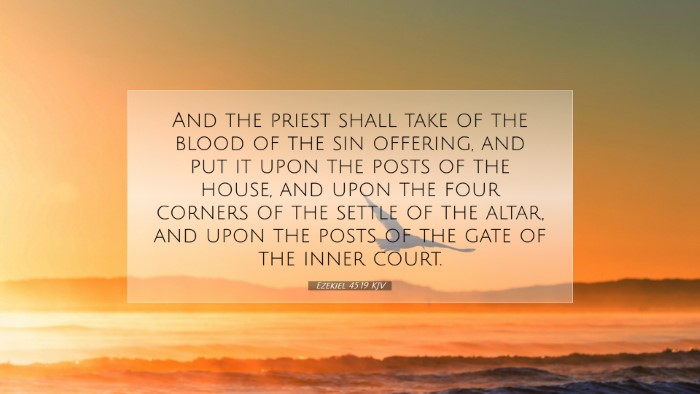Bible Commentary on Ezekiel 45:19
Ezekiel 45:19 (ESV): “And the priest shall take some of the blood of the sin offering and put it on the doorposts of the house, and on the four corners of the altar that is before the LORD.”
Contextual Overview
The Book of Ezekiel is a prophetic work that emphasizes the themes of judgment and restoration. Ezekiel received visions from God during a time of exile for the Israelites, where he not only prophesied about their current situations but also delivered messages of hope for future restoration. The specific verse, Ezekiel 45:19, deals with the ritualistic practices concerning the sacrifices and the role of the priests within the temple. The commentary on this verse draws from notable public domain sources, including those by Matthew Henry, Albert Barnes, and Adam Clarke.
Commentary Insights
1. The Role of the Priest
Matthew Henry emphasizes the significant role of the priest in the sacrificial system, where they act as mediators between God and the people. The priest's responsibility to apply the blood to the doorposts and the altar signifies the importance of atonement and the covering of sins. Blood represents life, and its application reflects the need for purification and reconciliation with God.
Albert Barnes notes that the act of using blood in sacrifices underscores the gravity of sin and the necessity of atonement. The priest's ritualistic actions reveal the seriousness with which God treats sin, as well as His desire for the people to approach Him in holiness. The doorposts of each house symbolize invitation and protection; thus, the application of blood serves to sanctify the dwelling of the worshipper.
2. Symbolism of the Blood
Adam Clarke elaborates on the symbolic nature of the blood within the context of sacrificial offerings. The blood of the sin offering is representative of the life that has been given up. Clarke connects this with the New Testament understanding of Christ’s sacrifice, where the blood of Jesus serves as the ultimate atonement for sin. The sacrificial system in Ezekiel foreshadows the greater sacrifice to come, reinforcing New Testament themes of redemption and forgiveness.
3. The Altar’s Significance
The altar mentioned in Ezekiel 45:19 plays a pivotal role in the sacrificial system. According to Matthew Henry, the altar is the place where divine encounters occur, and the application of blood signifies both judgment against sin and the mercy of God. The altar becomes the focal point of worship and the embodiment of God’s covenant relationship with His people.
4. A Call to Holiness
The narrative surrounding sacrifices emphasizes the need for holiness in approaching God. Albert Barnes suggests that this act serves as a profound reminder for believers to maintain a lifestyle that reflects the holiness of God. The application of blood not only redeems but also calls for a continual commitment to living in a way that is pleasing in God’s sight.
Practical Applications
The insights drawn from Ezekiel 45:19 are immensely valuable for pastors, students, and theologians as they navigate themes of sanctification and atonement.
- Understanding Atonement: This verse illustrates the seriousness of sin and the necessity of atonement through blood offerings, urging believers to reflect on the significance of Christ’s sacrifice.
- Emphasizing the Priesthood: The role of the priest as a mediator can be applied to the New Covenant understanding where Jesus is the High Priest, reminding believers of their communion with God.
- Encouraging Holy Living: As the application of blood sanctifies the altar and the household, so should believers strive to sanctify their lives through obedience and dedication to God.
Conclusion
Ezekiel 45:19 serves as a profound reminder of the sacrificial system’s role in Israel's covenant community. The intricate details woven into this verse echo throughout Scripture, pointing towards a greater reality found in Christ. The teachings from public domain commentaries enrich our understanding of how these ancient practices inform our current faith and life in Christ. The act of applying blood signifies not only atonement but also an ongoing call to live holy lives, dedicated to the service of the Lord.


